July 28, 2021 – Shreveport, LA – It was the brown Historic Site sign that made me pull over.
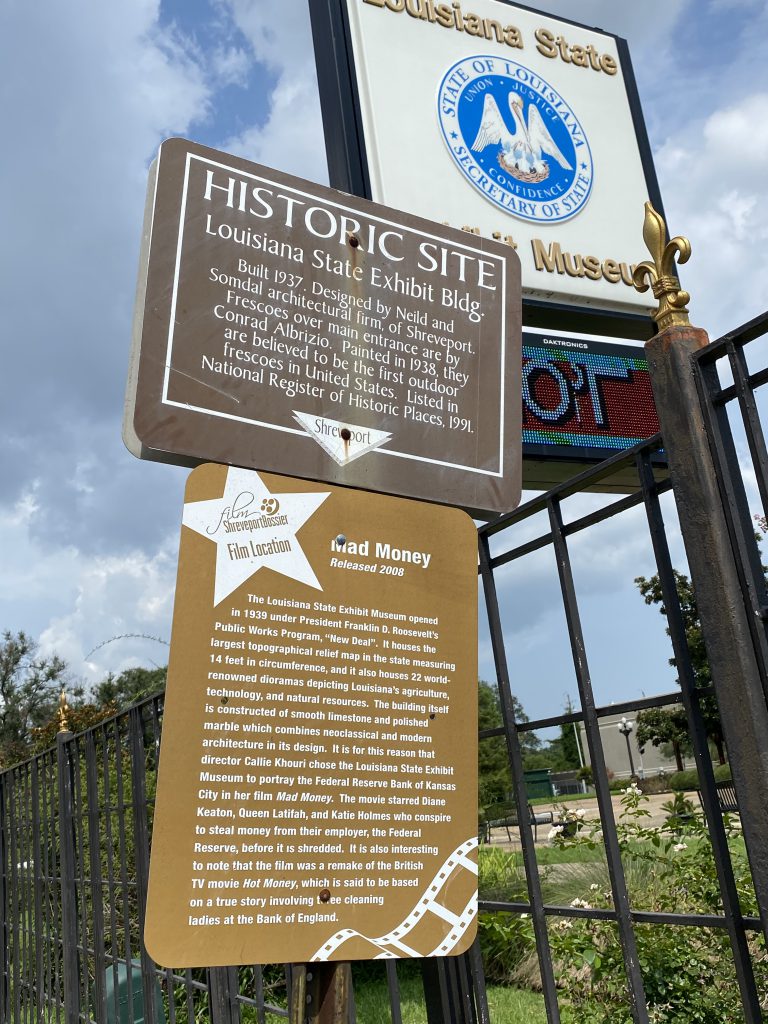 What looked like a boring government building held a fascinating story of history once through the entryway. And that story was told simply through beeswax.
What looked like a boring government building held a fascinating story of history once through the entryway. And that story was told simply through beeswax.
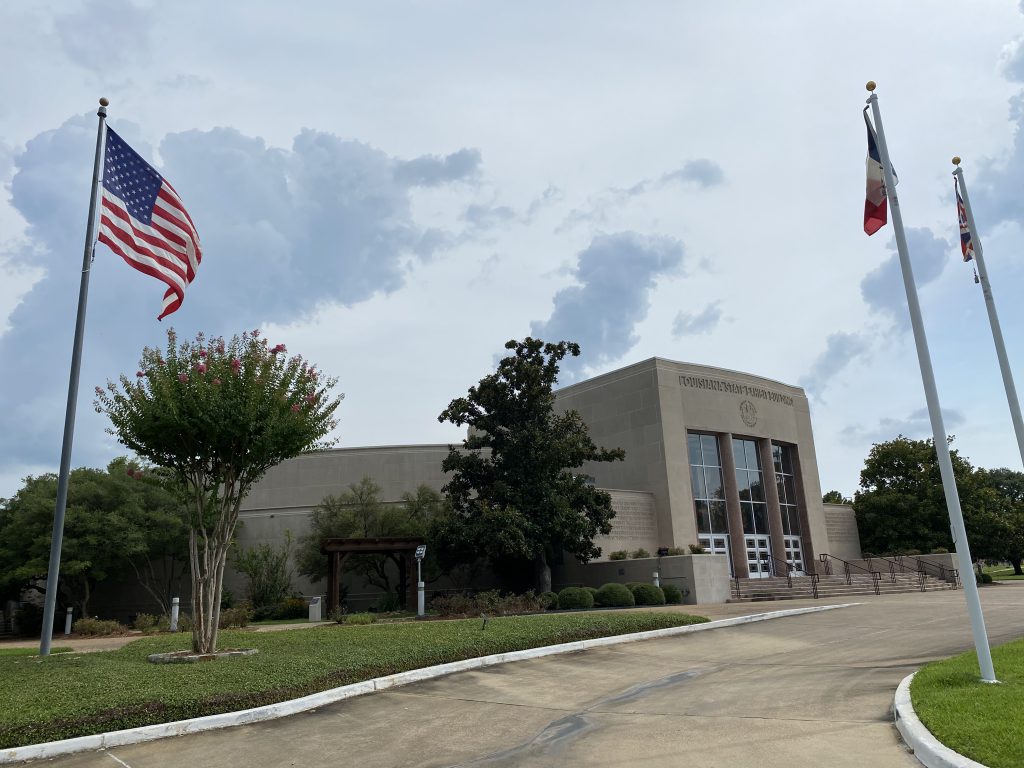
It was the Louisiana State Museum Building constructed in 1937. The sign said there were frescoes over the main entrance and the place was listed on the National Register of Historic Places in 1991.
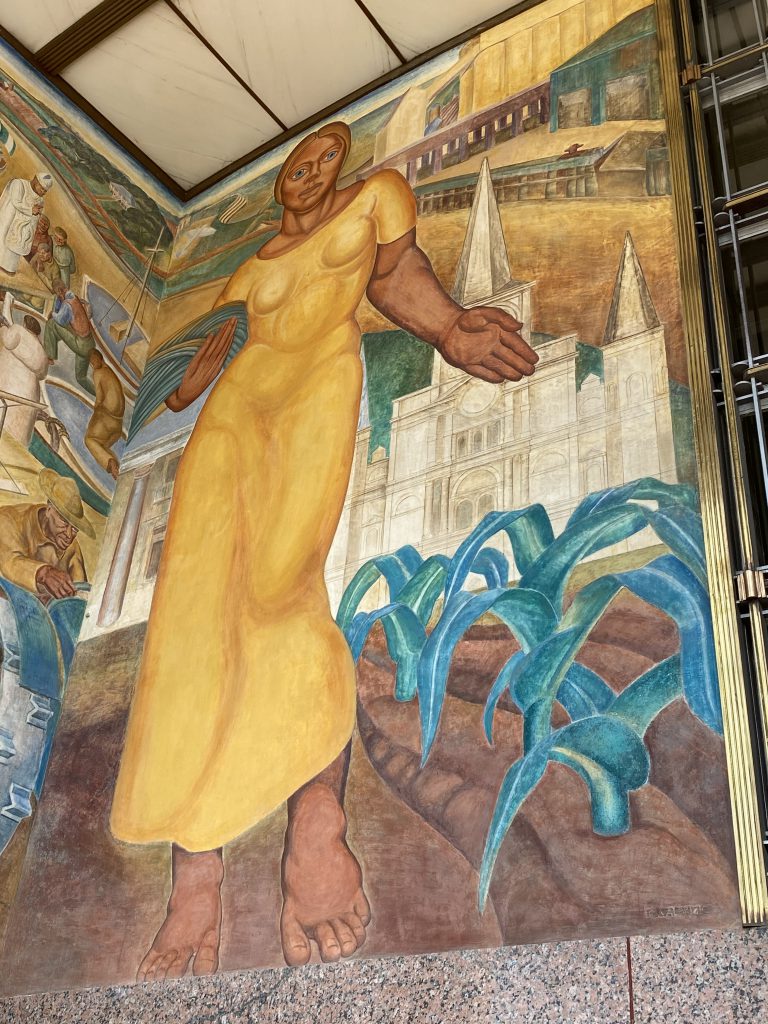
The four-panel fresco at the entry was composed by Conrad Albrizio and it represented south and north Louisiana and the respective industries during the late 1930s.
The painting measured about 710 ft.; the size and scale match the style of the architecture.
According to information from the museum, “the mural is a true fresco. it’s a technique rare in the United States and one of the things the mural does is introduce people to the natural resources of the state. Inside it is enhanced by 22 dioramas that were designed by a team of artists between 1939 and 1942.
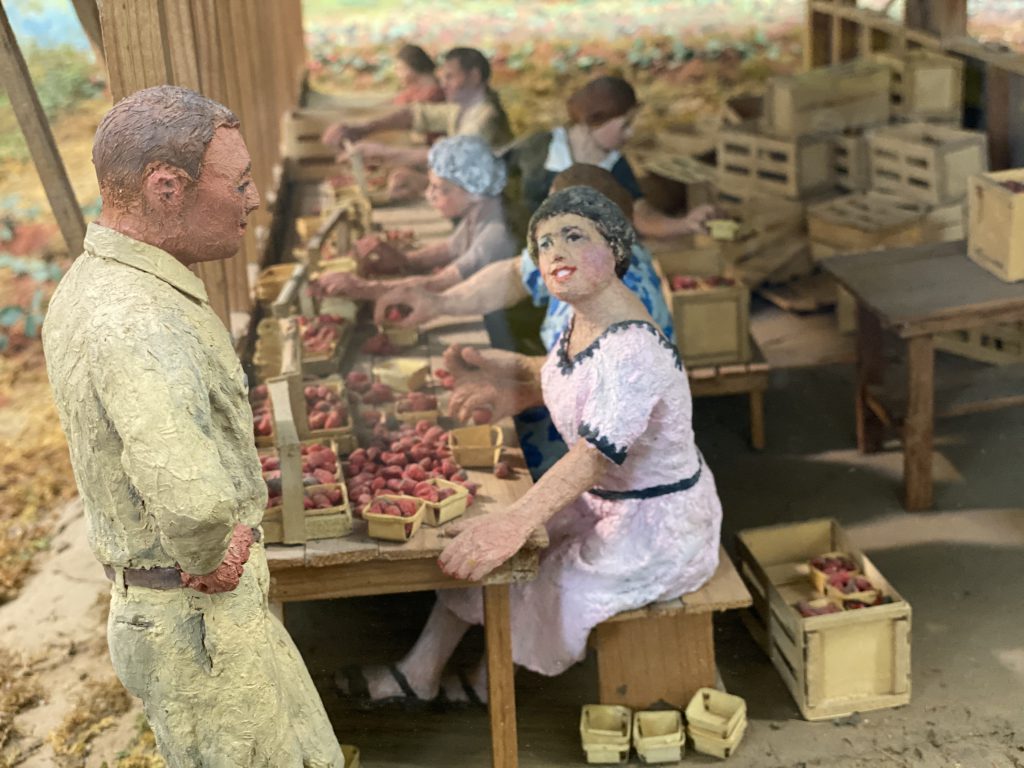
What’s really fascinating about the dioramas, aside from each showing the industry of the state which included agriculture, farming and mining − each figure was constructed out of beeswax.
The artist behind the figures is Henry B. Wright or H.B. Wright and the figures he made are 1/8 scale and just accurate in every detail.
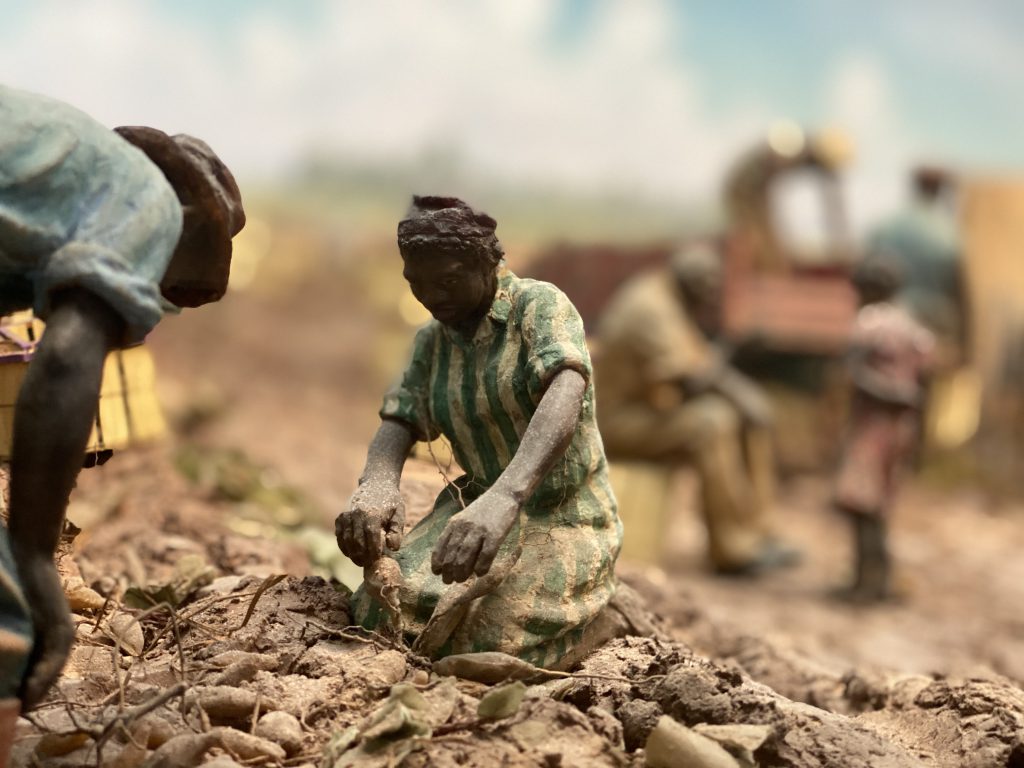
It includes individual stalks of corn in a field, men straining under heavy sacks of potatoes, minute details on farm tractors and horse halters, and ladies in the kitchen packing salt or strawberries.
Each figure has a unique face; the women are wearing lipstick and the men straw hats. There are frowns on the faces from fatigue and working in the sun.
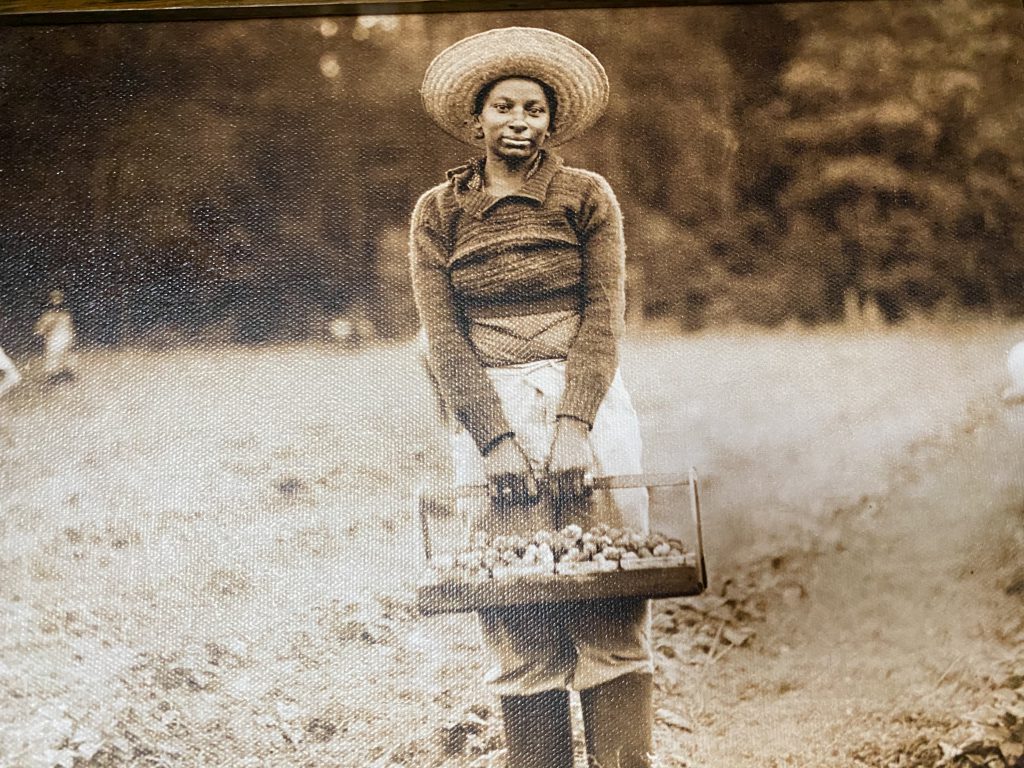
Atop the window to the dioramas are a series of black-and-white photos depicting related scenes from the era.
Weariness and exhaustion are evident in the masterpiece that highlights the industry and strong work ethic of the fabric that is Louisiana.
 Bonnie died wearing a wedding ring−but it wasn’t Clyde’s. Six days before turning 16, Bonnie married high school classmate Roy Thornton. The marriage disintegrated within months, and Bonnie never again saw her husband after he was imprisoned for robbery in 1929. Soon after, Bonnie met Clyde, and although the pair fell in love, she never divorced Thornton. On the day Bonnie and Clyde were killed in 1934, she was still wearing Thornton’s wedding ring and had a tattoo on the inside of her right thigh with two interconnected hearts labeled “Bonnie” and “Roy.” Klein, C. (2019, May 31) 10 Things You May Not Know About Bonnie and Clyde history.com https://www.history.com/news/10-things-you-may-not-know-about-bonnie-and-clyde
Bonnie died wearing a wedding ring−but it wasn’t Clyde’s. Six days before turning 16, Bonnie married high school classmate Roy Thornton. The marriage disintegrated within months, and Bonnie never again saw her husband after he was imprisoned for robbery in 1929. Soon after, Bonnie met Clyde, and although the pair fell in love, she never divorced Thornton. On the day Bonnie and Clyde were killed in 1934, she was still wearing Thornton’s wedding ring and had a tattoo on the inside of her right thigh with two interconnected hearts labeled “Bonnie” and “Roy.” Klein, C. (2019, May 31) 10 Things You May Not Know About Bonnie and Clyde history.com https://www.history.com/news/10-things-you-may-not-know-about-bonnie-and-clyde
Have I not commanded you? … Be strong and courageous. … Do not be frightened, and do not be dismayed, for the Lord your God is with you wherever you go.” Joshua 1:9
The 2021 Amazing Ride for Alzheimer’s is raising money this year for music programming for seniors at Cedar Community, a 501c3, so all donations are tax-deductible.
Donate via the secure website through Cedar Community. Donations should be marked “Amazing Ride 2021.” Click HERE to make a secure online donation.
Checks may be made payable to “Cedar Community Foundation” with “Judy Bike Ride” in the memo line and mailed to 113 Cedar Ridge Dr., West Bend, WI 53095
Be sure to include the Federal Tax ID Number for the Foundation: 39-1249432
You may also find a downloadable donation form HERE.
Cedar Community is a 501(c)3 not-for-profit organization, and donations are tax-deductible.





